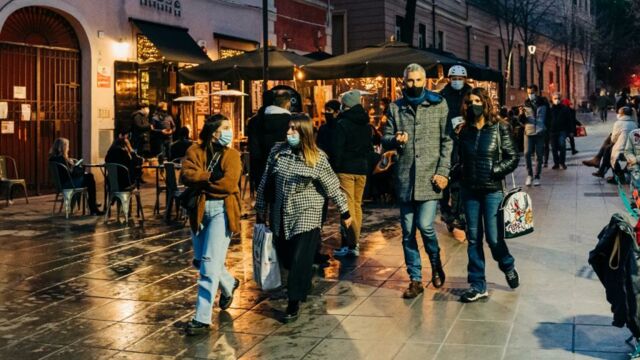The latest mutation of the coronavirus has proven to be extremely contagious, meaning that whether you are vaccinated or not, your chances of getting infected are higher than with previously dominant strains.
Discover our latest podcast
In an attempt to reduce community transmission in the UK, authorities made it a legal requirement for everyone to wear face coverings in most indoor public places once again in December. These settings include shops, libraries, places of worship, transportation hubs, and post offices.
‘Stale’ air
Most recently, they also made this a mandatory requirement for school-going children when they are inside classrooms.
While discussing the new change on Sky News, Professor Calum Semple from the University of Liverpool said that a similar stance need not be applied for outdoor settings because of two main reasons—ultraviolet light and fresh air. He said:
When you’re outside, there’s ultraviolet light and there’s good air change so you don’t catch this virus outside. That’s got to be put to bed.
The issue inside the classroom is that the air may be stale and some of the aerosols from people speaking can linger in the air for a matter of hours, if the air isn’t changing.
Safely interacting outdoors
Although Professor Calum specified that the notion that you will catch COVID while outdoors needs to be 'put to rest,' other experts argue that it's not actually that simple.
A reportage by BBC outlined that your ability to get infected in an outdoor setting actually depends on how long you are interacting with a coronavirus carrier and also how close you are to them, physically.
Professor Cath Noaks, an airborne infection expert from the University of Leeds, explains that you aren't necessarily safe if you're talking to an infected person in close proximity for an extended period of time, even if you are in an open space. She added:
The sad fact is that your greatest risk is from the people you know.















